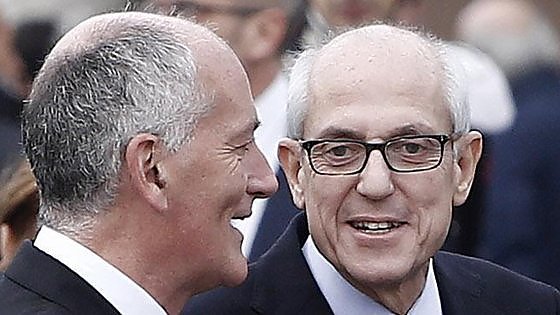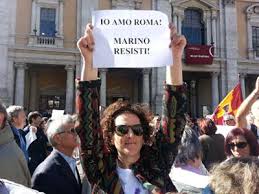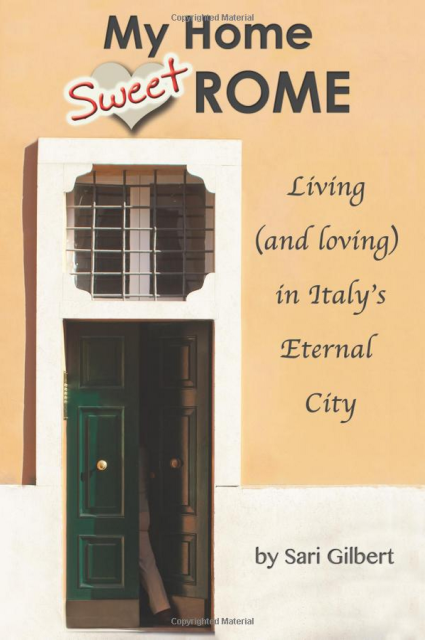Rome left rudderless on eve of Holy Year (or not)
Well, Rome is now in a pretty pickle. Just four weeks from now, on December 8, the Jubilee or Holy Year (the year-long Vatican-sponsored celebration that many of us residents are dreading) is to begin and Rome, the Eternal City, is without a mayor. True, there is now a prefect – actually two prefects – who for the coming months will be running the city. But it is pretty embarrassing that it has come to this and the blame is to be shared out between the outgoing mayor, Ignazio Marino, formerly a successful transplant surgeon, and the political party that sponsored his political career and has now (finally!) disowned him.
Whatever his good intentions when he was elected mayor in June, 2013, Marino quickly showed himself incapable of managing a city with myriad problems in sectors such as sanitation, public transport, and security. And like some of his predecessors he also failed to gain influence over other city institutions whose support, or lack thereof, can make or break any Italian mayor: municipal police, civil servants, and the (often corrupt or inefficient managers ) of the semi-autonomous agencies managing transport or garbage collection. Indeed, Marino’s major failing may well have been that of not putting into effect measures that would allow the city administration to ward off attempts at infiltration by criminal elements; a report by a special commission released this week says he continued many of the former administration’s contract procedures and kept on bureaucrats who for a truly clean sweep should have been replace. As Raffaele Cantone, Italy’s anti-corruption chief put it last week, Rome (unlike Milan) does not have the necessary antibodies to stave off corruption, and Marino clearly was unable to do much in that direction.
Under fire from merchants opposing his controversial plan to shut a good part of the city center to traffic, and faced with growing complaints from Romans of all political stripes about the filth and disorganization that have increasingly characterized daily life here, the now former mayor then became embroiled in a dispute about expenses and foreign travel. Interestingly enough, he had been accused of similar irregularities when he left his post as transplant surgeon at the University of Pittsburgh and director of an ultra-modern, Italian-American liver transplant hospital in Palermo, Sicily. But despite this, in 2005 the left-of-center Partito Democratico nevertheless put forth his candidacy to the Italian Senate, to which he was elected the following year. And in 2012 its members chose him, despite his lack of governing experience, as their choice for mayor.
Marino resigned on October 8, only to withdraw his goodbye decision three weeks later. This, in turn, precipitated an unprecedented mass resignation by 26 of the city’s assemblymen, or consiglieri, a move that automatically brought down his administration and quite frankly made him look more pathetic than ever. This was compounded when, egged on by supporters who believe he has been misunderstood and maligned, he compared himself to Julius Caesar and described recent events as similar to Caesar’s assassination on the Ides of March. Oh, please.
The left-of-center replaced the rightwing mayor Gianni Alemanno, who has since been charged in part of the Mafia Capitale scandal that erupted when it became known that criminal elements had successfully corrupted politicians (from rightwing AND leftwing parties) and bureaucrats in order to directly and indirectly manage key contracts in municipal programs. The Mafia Capitale trial began in Rome last week but it should be noted that Mafia Capitale is something of a misnomer as the scandal has nothing to do with the Sicilian, Calabrian or Neapolitan mafia organizations. It got its name because investigators say the criminal elements involved used “mafiosi” methods of intimidation and corruption.
Marino is in no way involved in this. But he has been advised that a magistrate is looking into some alleged financial irregularities during a trip to the U.S. this past summer and some other travel and dinner receipts he submitted for reimbursement before that. But they are relatively minor sums and it should be remembered that in Italy a magistrate’s decision to open an inquiry is a formal act that can mean next to nothing in a judicial system where judges are obliged by law to investigate whenever charges have been made. It would seem likely that these relatively small financial misappropriations (if such they were) were seized on by Marino’s frustrated opponents – both in his own party and others – to speed up his political demise. But he made things worse by at first denying he had been informed that an investigation was underway.
It is hard to imagine why a man who was an accomplished liver transplant surgeon in the United States (he has held chairs as Professor of Surgery at the University of Pittsburgh and at the Thomas Jefferson University in Philadelphia and played a key role in setting up the ISMETT liver transplant center in Palermo, Sicily, founded in 1997) would have wanted to get into politics. But at least while he was a Senator (2006-2011) he dealt with health related matters. Whoever thought he might make a good mayor for a city where chaos reigns was just not thinking straight. As for Marino himself, he must have been suffering from an incurable bout of plain old hubris. Elections for a new mayor will probably be held next spring with the capital’s various parties now trying to come up with viable candidates to replace him. The coming months will prove to be a particular challenge to Marino’s party, the Partito Democratico, 19 of whose elected councilors spearheaded the recent democratic putsch by the Council. Many members of the local branch of the party (which is also the party of Premier Matteo Renzi) were involved in a recent corruption scandal and are to be tried. And the party’s inability to get rid of the mayor as soon as it became clear he was not up to the task has also severely damaged its image.
In the meantime, the government has appointed a highly-respected Milan police official, Prefect Francesco Paolo Tronca, to run the city until elections are held next spring. Mr. Tronca took office last Monday and spent the following week putting together a team of experts to provide an emergency administration for the Italian capital. Mr. Tronca will be working side by side with Franco Gabrielli, the current Rome Prefect, he, too, highly esteemed and currently in the process of setting up a “dream team” of administrators to deal with the stresses and strains that will inevitably be created by a Holy Year celebration expected to bring millions of pilgrims into the Eternal City.





Shades of Ben Carson! I think to be a great physician you need — and training encourages — a certain hubris. Works in their own profession, but when the hubris makes them think they are entitled to whatever they want and that they can just show up and cure the body politic as well as the body physical, beware!
Good point, Marged. Except I am not sure hubris ever really works. It will bring you down in the end,